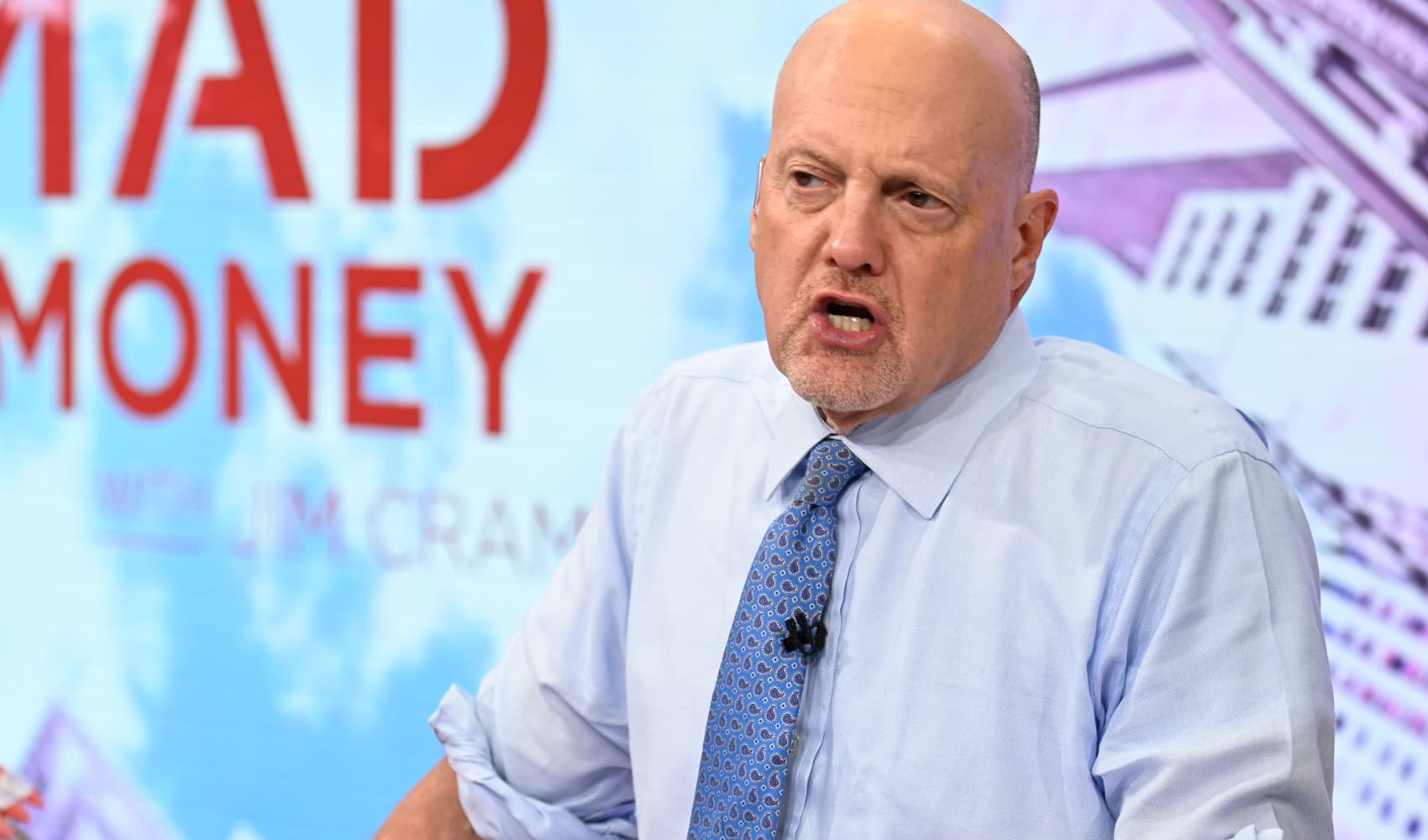
Jerome Powell, chairman of the US Federal Reserve, during a news conference following a Federal Open Market Committee (FOMC) meeting in Washington, DC, US, on Wednesday, July 31, 2024.
- A deeper interest rate cut from the Federal Reserve this month could spook financial markets and send the wrong message about an imminent risk of recession, according to one economist.
- It comes as policymakers at the U.S. central bank are widely expected to start lowering interest rates when they meet on Sept. 17-18.
- George Lagarias, chief economist at Forvis Mazars, told CNBC on Thursday that while no one can guarantee the scale of the Fed's rate cut at its forthcoming meeting, he is "firmly" in the camp calling for a quarter-point reduction.

A deeper interest rate cut from the Federal Reserve this month could spook financial markets and send the wrong message about an imminent risk of recession, according to one economist.
It comes as policymakers at the U.S. central bank are widely expected to start lowering interest rates when they meet on Sept. 17-18, with investors closely monitoring economic data for clues on just how big a rate move they are likely to deliver.
Get top local stories in Philly delivered to you every morning. Sign up for NBC Philadelphia's News Headlines newsletter.
George Lagarias, chief economist at Forvis Mazars, told CNBC on Thursday that while no one can guarantee the scale of the Fed's rate cut at its forthcoming meeting, he is "firmly" in the camp calling for a quarter-point reduction.
"I don't see the urgency for the 50 [basis point] cut," Lagarias said.
"The 50 [basis point] cut might send a wrong message to markets and the economy. It might send a message of urgency and, you know, that could be a self-fulfilling prophecy," he continued. A basis point is 0.01 percentage point.
Money Report
"So, it would be very dangerous if they went there without a specific reason. Unless you have an event, something that troubles markets, there is no reason for panic."
How big will the Fed rate cut be?
The Fed's benchmark borrowing rate, which influences a bulk of other rates that consumers pay, is currently targeted in a range between 5.25%-5.5%.
Atlanta Federal Reserve President Raphael Bostic on Wednesday signaled his readiness for the central bank to start lowering interest rates. His comments came ahead of what is expected to be a highly influential nonfarm payrolls report on Friday.
Strategists have typically said the most likely outcome from the Fed's forthcoming meeting is a 25 basis point rate cut, although recent economic data appears to have strengthened the case for a bigger move.
Data published Wednesday showed that U.S. job openings fell to their lowest level in in 3½ years in July, in what was seen as another sign of slack in the labor market.
Market participants are firmly pricing in a rate cut at the Fed's next policy-setting meeting, although bets increased for a half-point reduction after the release of the Job Openings and Labor Turnover Survey, or JOLTS, report.
Traders are currently pricing in a roughly 59% chance of a 25 basis point rate cut in September, with 41% pricing in a 50 basis point rate reduction, according to the CME Group's FedWatch Tool.
'Very far from a recession'
Ahead of the next monthly jobs report Friday investors are also likely to assess a fresh batch of economic data on Thursday. These readings include ADP employment figures for August, the latest weekly initial jobless claims and Institute for Supply Management services data for August.
"There is a slowdown taking place, there is no question about it, but I think we are very far from a recession. I understand there is a tick down in the jobs market, some of it … has to do with an increase in supply rather than a decrease in demand," Lagarias told CNBC's "Squawk Box Europe" on Thursday.
"Yes, job openings are weaker, and manufacturing is weaker, but we were expecting this slowdown [and] everybody was expecting this slowdown. There is just no evidence for a recession and, to that point, I don't think the Fed is going to move very aggressively."
Lagarias is not alone in cautioning the Fed against a half-point reduction this month.
Mohit Kumar, chief financial economist for Europe at Jefferies, told CNBC on Aug. 13 that there is "absolutely no need" for the Fed to cut by 50 basis points at the September meeting.
— CNBC's Jeff Cox contributed to this report.






